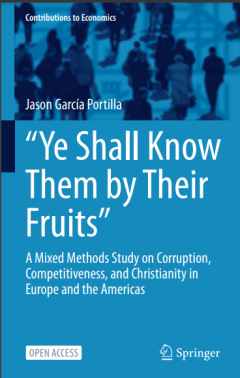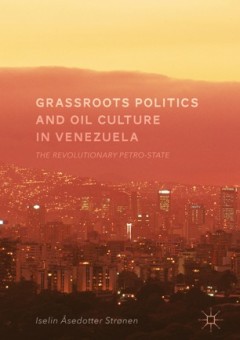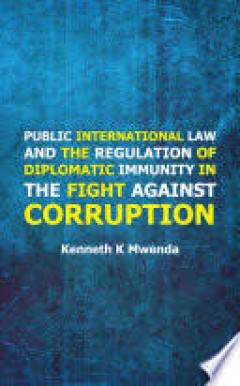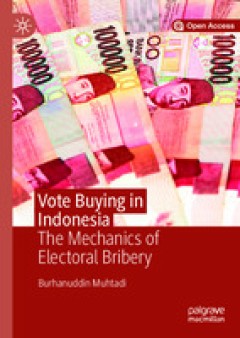Filter by

“Ye Shall Know Them by Their Fruits” A Mixed Methods Study on Corruption…
Why are historically Catholic countries and regions generally more corrupt and less competitive than historically Protestant ones? How has institutionalization of religion influenced the prosperity of countries in Europe and the Americas? This open access book addresses these critical questions by elucidating the hegemonic and emancipatory religious factors leading to these dissimilarities b…
- Edition
- -
- ISBN/ISSN
- 9783030784980
- Collation
- XXXVI, 407 p ; ill
- Series Title
- -
- Call Number
- 201.73 SHA J

Grassroots politics and oil culture in Venezuela : the revolutionary petro-state
This book presents an ethnographic study of how grassroots activism in Venezuela during the Chávez presidency can be understood in relation to the country's history as a petro-state. Taking the contested relationship between the popular sectors and the Venezuelan state as a point of departure, Iselin Åsedotter Strønen explores how notions such as class, race, state, bureaucracy, popular poli…
- Edition
- -
- ISBN/ISSN
- 9783319595078
- Collation
- xxi, 357p. : ill.
- Series Title
- -
- Call Number
- 987.0642 STR g

Public international law and the regulation of diplomatic immunity in the fig…
At times, the book reads like a political thriller as, for example, when Prof Mwenda writes about diplomats who disregard traffic laws and fail topay fines. There is apparently a correlation between recalcitrant diplomatsand their countries’ standing on corruption perception indices. This iscertainly the case with respect to African diplomats. Those diplomats fromcountries perceived to be th…
- Edition
- -
- ISBN/ISSN
- 9780986985799
- Collation
- x, 218 pages ; 25 cm.
- Series Title
- -
- Call Number
- 340 MWE p

Vote buying in Indonesia : the mechanics of electoral bribery
This book investigates the impact of vote buying on the accountability of democratic institutions and policy representation in newly democratic countries, with a focus on Indonesia. In doing so, the book presents a wide-ranging study of the dynamics of vote buying in Indonesia’s young democracy, exploring the nature, extent, determinants, targeting and effectiveness of this practice. It addre…
- Edition
- -
- ISBN/ISSN
- 9789811367793
- Collation
- xiv, 318p. : ill.
- Series Title
- -
- Call Number
- 364.1324 MUH v
 Computer Science, Information & General Works
Computer Science, Information & General Works  Philosophy & Psychology
Philosophy & Psychology  Religion
Religion  Social Sciences
Social Sciences  Language
Language  Pure Science
Pure Science  Applied Sciences
Applied Sciences  Art & Recreation
Art & Recreation  Literature
Literature  History & Geography
History & Geography